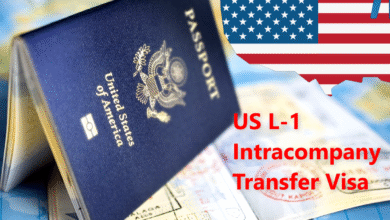The Role of Trusts in Estate Planning
Effective estate planning is essential for ensuring that your assets are distributed according to your wishes while providing financial security for your loved ones.

The Role of Trusts in Estate Planning: Protecting Your Assets and Loved Ones
Effective estate planning is essential for ensuring that your assets are distributed according to your wishes while providing financial security for your loved ones. One of the most powerful tools in estate planning is the use of trusts. At May Herr & Grosh LLP, a trusted law firm in Lancaster, PA, we understand that a well-crafted estate plan can help protect your legacy and minimize potential disputes among heirs. In this post, we’ll explore the role of trusts in estate planning, how they work, and why they are an indispensable component of protecting your assets and loved ones.
What Is a Trust?

A trust is a legal arrangement in which one party, known as the grantor, transfers ownership of assets to a trustee, who manages these assets on behalf of the beneficiaries. Trusts can be set up for a variety of reasons, including avoiding probate, reducing estate taxes, and protecting assets from creditors or irresponsible spending. Unlike a will, which only takes effect after death, a trust can provide benefits during your lifetime as well as after you pass away.
Types of Trusts
Understanding the different types of trusts available is crucial when tailoring an estate plan to your needs:
- Revocable Trusts: Also known as living trusts, these allow you to retain control over your assets during your lifetime. You can modify or revoke the trust at any time. Revocable trusts are excellent for avoiding probate, ensuring that your estate is settled privately and efficiently.
- Irrevocable Trusts: Once established, irrevocable trusts cannot be easily altered. These are often used for tax planning and asset protection since the assets are permanently removed from your estate.
- Testamentary Trusts: Created as part of your will, these trusts come into effect upon your death. They can be designed to manage the distribution of your assets over time, particularly for beneficiaries who may not be ready to manage a large inheritance on their own.
- Special Needs Trusts: Specifically designed to provide for a beneficiary with disabilities without affecting their eligibility for government assistance, these trusts ensure that your loved one is financially secure while maintaining their access to vital public benefits.
Benefits of Incorporating Trusts in Your Estate Plan
Avoiding Probate
One of the primary advantages of using a trust is that it allows your estate to bypass the probate process—a legal procedure that can be time-consuming, costly, and public. With a properly funded trust, assets are transferred directly to beneficiaries without the need for court intervention. This not only saves time and money but also ensures privacy, a benefit highly valued by many families.
Reducing Estate Taxes
Trusts can be structured in ways that minimize the tax burden on your estate. For example, certain irrevocable trusts can remove assets from your taxable estate, potentially lowering estate taxes and preserving more of your wealth for your beneficiaries.
Protecting Assets and Controlling Distribution
Trusts provide a mechanism to protect your assets from creditors, divorcing spouses, or even mismanagement by beneficiaries. By setting clear terms within the trust document, you can control when and how your assets are distributed. This is particularly important if you have minor children or beneficiaries who may need guidance in managing a large inheritance.
Flexibility in Management
With trusts, you have the flexibility to address complex family situations and special circumstances. Whether you wish to provide ongoing support for a family member with special needs, fund a charitable cause, or ensure that your assets are managed prudently over time, trusts offer a customizable solution to meet your specific objectives.
Ensuring Continuity
A trust can serve as a long-term management tool for your assets. Should you become incapacitated, a revocable living trust allows a successor trustee to step in and manage your affairs seamlessly. This continuity of management is invaluable for maintaining stability and protecting your interests during challenging times.
Why Work with Experienced Estate Planning Attorneys?
Crafting an effective estate plan that incorporates trusts requires expertise in both legal and tax matters. At May Herr & Grosh LLP, our experienced estate planning attorneys are well-versed in the intricacies of trust law and estate administration. We work closely with our clients in Lancaster, PA, to design personalized estate plans that protect their assets, honor their wishes, and provide for their loved ones.
Our comprehensive approach includes:
- Detailed Consultations: We begin with an in-depth review of your financial situation, family dynamics, and long-term goals.
- Customized Trust Structures: Whether you need a revocable living trust, an irrevocable trust, or a specialized trust for unique circumstances, we tailor our solutions to fit your needs.
- Ongoing Support: Estate planning is not a one-time event. We offer continuous guidance and regular reviews to ensure that your estate plan remains aligned with any changes in your life or in the law.
Conclusion
Trusts are a cornerstone of modern estate planning, offering a versatile and powerful way to protect your assets, reduce tax liabilities, and ensure that your legacy is managed according to your wishes. By avoiding probate, safeguarding your wealth, and providing detailed control over asset distribution, trusts empower you to create a secure future for your family.
If you’re ready to explore how trusts can enhance your estate planning strategy, contact May Herr & Grosh LLP today. Our dedicated team of estate planning attorneys in Lancaster, PA, is here to guide you through every step of the process, ensuring that your plan is as robust and personalized as your unique needs demand. Visit our website or call our office to schedule a consultation and take the first step toward a more secure and well-planned future.











